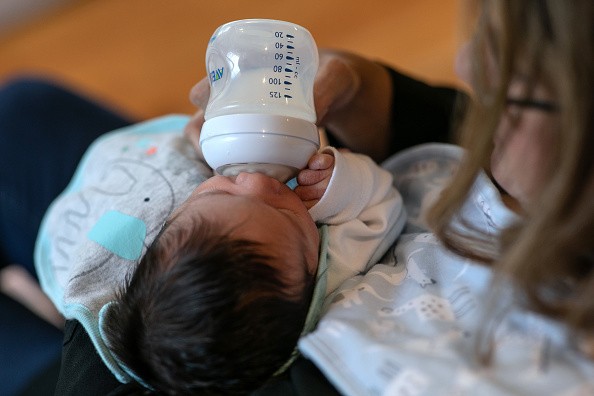Your Baby Might Ingest Microplastics While Feeding from Heated Bottles, Study Finds
A new study says high levels of microplastics are released from the feeding bottle of a baby when heated.
Tiny plastic pieces are known as microplastics, leak to baby bottles during formula preparation. Also, scientists link to heat and microplastics. Formula or water used to sterilize bottles, which are warm liquids, leads to a greater microplastics release.
According to Independent, microplastics are released in water and food systems through the breakdown of larger plastic waste. Through evidence, humans can ingest microplastics by the food chain due to the enormous amount of plastic pollution in the ocean.

But the researchers noted that the release of microplastics from several products in daily use is still under investigation. A set of recommendations for preparing formula in plastic baby bottles have been set by the study involving scientists from Trinity College Dublin. The guidance aims to minimize the leak of microplastics.
A new study in the journal Nature Food finds that they released huge quantities of plastic baby bottles to prepare formulas as per the standard guidelines. One of the commonly used plastic types worldwide is Polypropylene for food preparation and storage items, including kettles, lunch boxes, and plastic baby bottles.
However, according to NPR, the research team noted that its capacity to release microplastics was not fully appreciated. In 48 regions and countries, researchers estimated the exposure of 12-month-old babies to microplastics.
The study suggests that bottle-fed infants worldwide might be consuming over 1.5 million particles of microplastics daily on average. However, researchers warn that parents should not worry about the findings as there is still no enough evidence of any health risks regarding microplastic consumption by adults or babies.
The World Health Organization released a report last year saying that there's no enough evidence to conclude if microplastics in drinking water have a risk to human health. Still, it noted that more research should be made to draw firmer conclusions.
Philipp Schwabl, a researcher and physician at the Medical University of Vienna who authored a study that found microplastics in human excrement, said, "At the moment, there is no need to be afraid. But it is an open question, and unmet research needs."
Meanwhile, John Boland, one of the authors of the Nature Food study and a materials science researcher and professor of chemistry at Trinity College Dublin in Ireland, said that the last thing they want to do is unduly alarm parents.
Boland added that he and his co-authors decided to cite microplastics released by plastic baby bottles in part as there are a small number of products on the market. Baby bottles made of Polypropylene represent at least 82% of the market worldwide. A small number of manufacturers dominate sales, Boland says.
The researchers chose ten types of plastic baby bottles, representing nearly 70% of the global market. They measured the levels of microplastics released when used in preparing formula milk, as per the WHO guidelines.
Check these out:
Subscribe to Latin Post!
Sign up for our free newsletter for the Latest coverage!

















